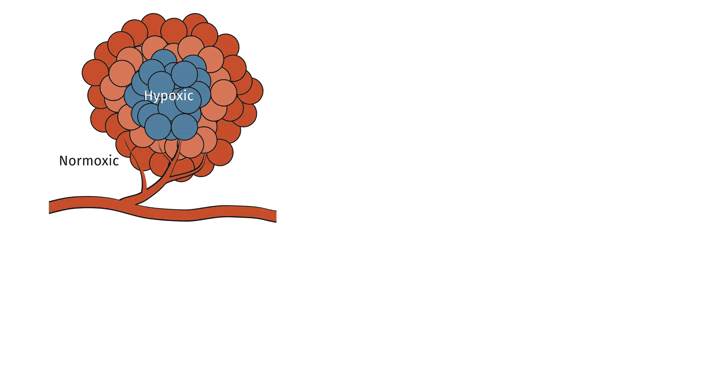
Science
Hypoxia is a major driver of immune suppression and cancer progression

Tumor hypoxia
Tumor hypoxia is a consequence of the aberrant nature of neovasculature in a growing tumor. Some areas of the tumor will experience chronic hypoxia and undergo necrosis, while cells in other areas will experience much more dynamic exposure to oxygen and adapt to these harsh conditions. Hypoxia-adapted cells are resistant towards radio-, chemo-, and immunotherapy and drive metastasis of cancers.
Tumor hypoxia empowers an immunosuppressive tumor microenvironment
Tumor hypoxia turns solid tumors "cold" by engaging several immunosuppressive pathways e.g., activation of adenosinergic signalling, recruitment of tumor-associated macrophages, myeloid-derived suppressor cells, and regulatory T-cells.
Consequently, immune checkpoint inhibitors and CAR-T therapies lack efficacy in solid tumors.
Using hypoxia-targeting macrocycles to eliminate hypoxic cancer cells, Kripthonite primes solid tumors for immuno-oncology treatments.
